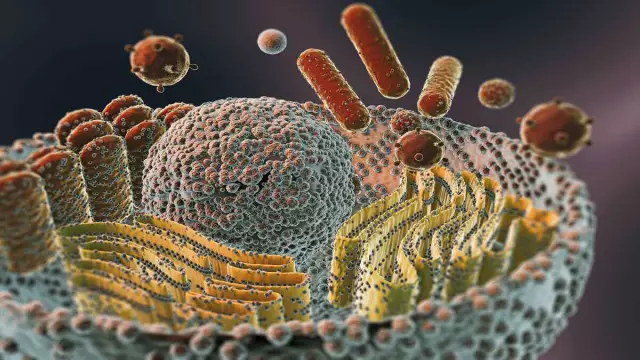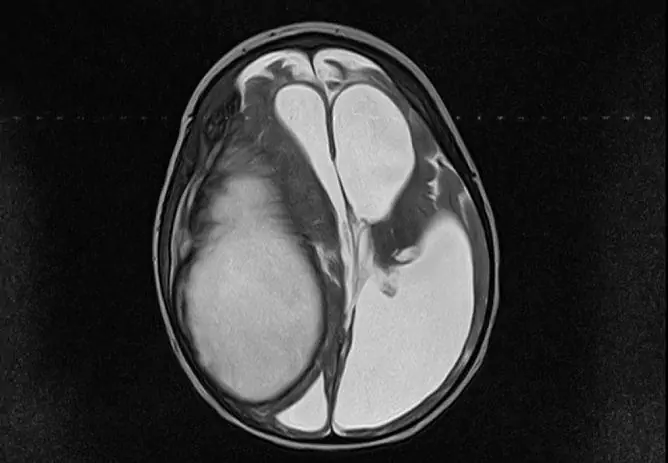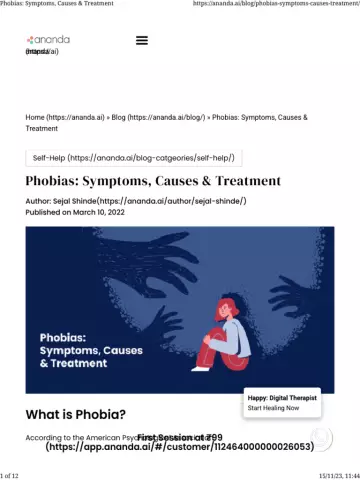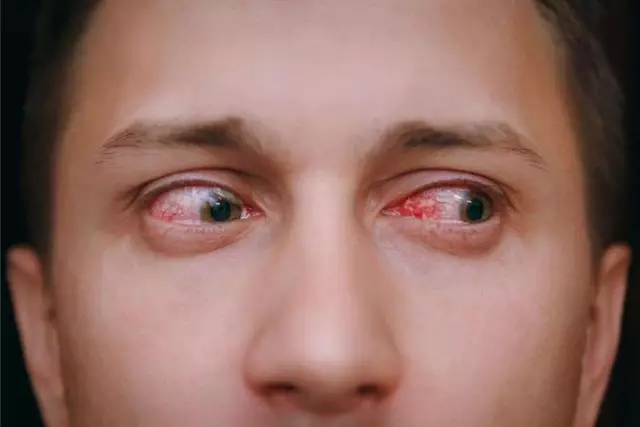- Author Rachel Wainwright wainwright@abchealthonline.com.
- Public 2023-12-15 07:39.
- Last modified 2025-11-02 20:14.
Listeriosis
General information about the disease

Although the history of the study of listeriosis has been going on for more than 100 years, this disease is practically unknown to practicing doctors. Listeriosis is found everywhere, regardless of the climatic conditions of the region and the lifestyle of people.
To be fair, it should be noted that listeriosis affects mainly animals. People rarely get sick. The small number of diagnoses is partly due to the fact that the analysis for listeriosis can only be carried out in specially equipped laboratories, since pathogens and antibodies are not detected using standard means.
Despite the relatively low incidence of listeriosis, the infection is deadly. Fatalities are recorded in 40-50% of adults and 70-80% of children. The most severe consequences are caused by listeriosis in pregnant women. The disease leads to premature birth, miscarriage, early infant mortality. Also at risk are the elderly and people with weakened immunity. In recent years, listeriosis has been increasingly detected in drug addicts who constantly destroy their immune system. One particularly dangerous drug is fentanyl. In the case of drug addicts, illness is usually the last link separating a person from death.
What causes listeriosis?
The causative agent of listeriosis belongs to the group of corynebacteria and is a small, movable rod that does not form a spore. Very often it is confused with a bacterium that causes diphtheria, therefore, if there is a suspicion of listeriosis, the diagnosis must necessarily take into account the similarity of these two pathogens.
In most cases, listeria accumulates in food, with which they then enter the human body. Bacterial bacilli retain their ability to reproduce at a temperature of 4-6 degrees C, therefore, storing food in the refrigerator does not lead to any significant decrease in the mass of Listeria. Saline solutions, which are used for canning vegetables, meat and dairy products, are also insufficiently effective. For this reason, when diagnosed with listeriosis, symptoms often appear even after consuming foods that have been processed with strict adherence to technological requirements.
At high temperatures (over 62 degrees C), listeria die, but only after 35-40 minutes. If the food is poorly cooked or fried, then the infection can be caused by single pathogens that survived in the epithelial cells and leukocytes. Special attention should be paid to the preparation of salads from raw cabbage, semi-finished meat products, soft cheeses and poultry.
The food route is the most common, but not the only, way for infection to enter the human body. The fact is that listeriosis often occurs in mild and erased forms, that is, the patient may not even suspect that he is a carrier of deadly microorganisms. The causative agent of listeriosis enters the body of healthy people through damaged skin or by airborne dust.
Listeriosis - symptoms and clinical picture of the disease
The first symptoms of listeriosis appear 2-3 weeks after infection. Patients feel:
- nausea and vomiting;
- drowsiness;
- stomach ache;
- temperature (38-39 degrees).
In addition, in patients with listeriosis, signs of CNS damage are often noted, manifested in the form of encephalitis, meningitis, or their combinations. In such cases, listeriosis in pregnant women and children is accompanied by coordination disorders, tremors, seizures and sometimes a stiff neck. The disease is not dangerous directly for expectant mothers, but it has an extremely negative effect on the development of the fetus, especially in the later stages of pregnancy. Even if the child does not die, he will almost certainly have serious disorders: purulent conjunctivitis, bacteremia, specific formations in the liver and spleen, papular rash. For this reason, with symptoms of listeriosis, the diagnosis of pregnant women should be carried out as carefully as possible in order to refute or, conversely, confirm the presence of listeria in the body.
Listeriosis treatment

Because the correct diagnosis is usually too late, treatment for listeriosis is rarely successful. First of all, this is due to lesions of the central nervous system, where the access of drugs is very difficult. The most effective antibiotics are ampicillin, gentamicin and biseptol. If, during the diagnosis of listeriosis, the analysis shows the development of brain abscesses or meningoencephalitis, then patients require long-term treatment with the use of immunocorrective drugs: thymalin, imunofan, myelopid. Complex therapy of listeriosis also includes the use of dehydrating and symptomatic agents, detoxification solutions, and blood plasma.
Once again, we note: despite the improvement of medical technologies and the emergence of new drugs, the treatment of listeriosis almost entirely depends on how early the disease was detected.
Prevention of listeriosis
Prevention of listeriosis implies regular sanitary and hygienic measures in livestock farms and in enterprises that process animal products. Pregnant women and others at risk should be excluded from work related to the manufacture of dairy products, meat products or caring for animals.
YouTube video related to the article:
The information is generalized and provided for informational purposes only. At the first sign of illness, see your doctor. Self-medication is hazardous to health!






